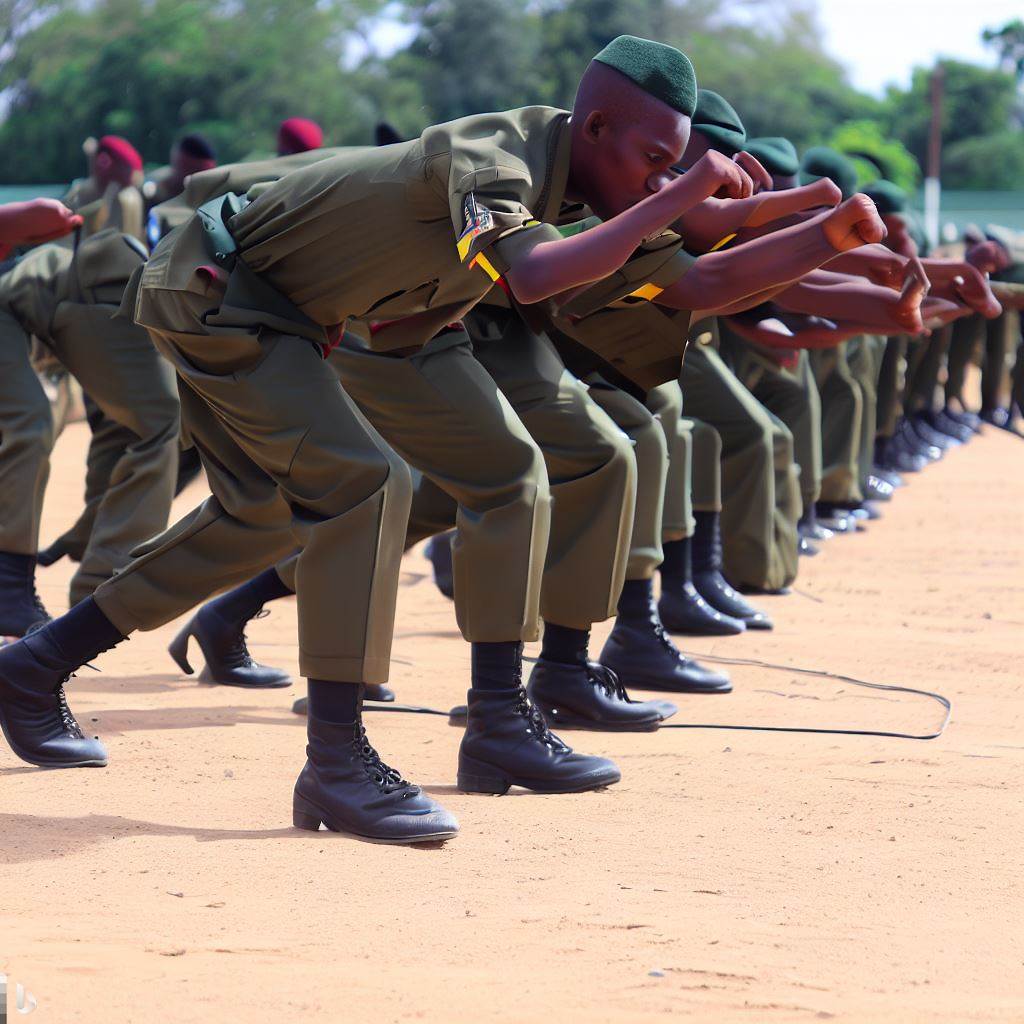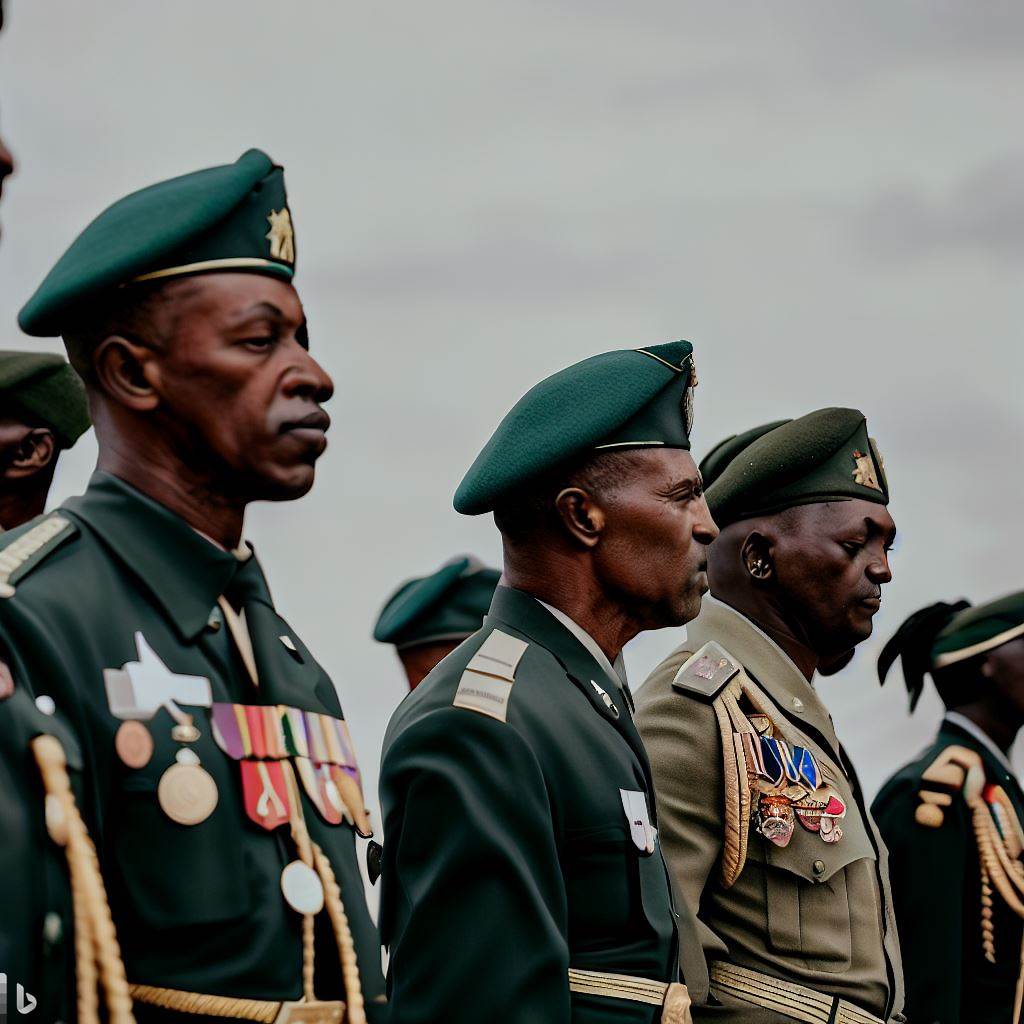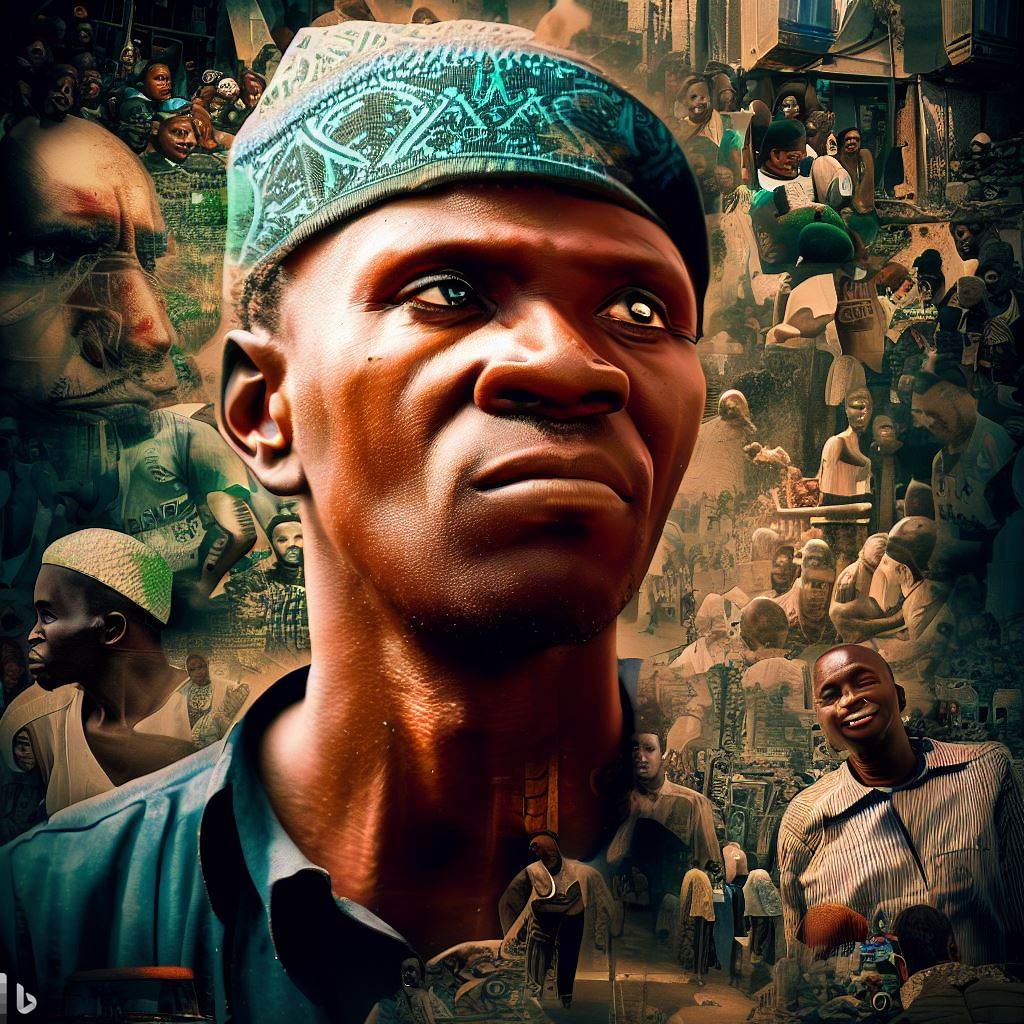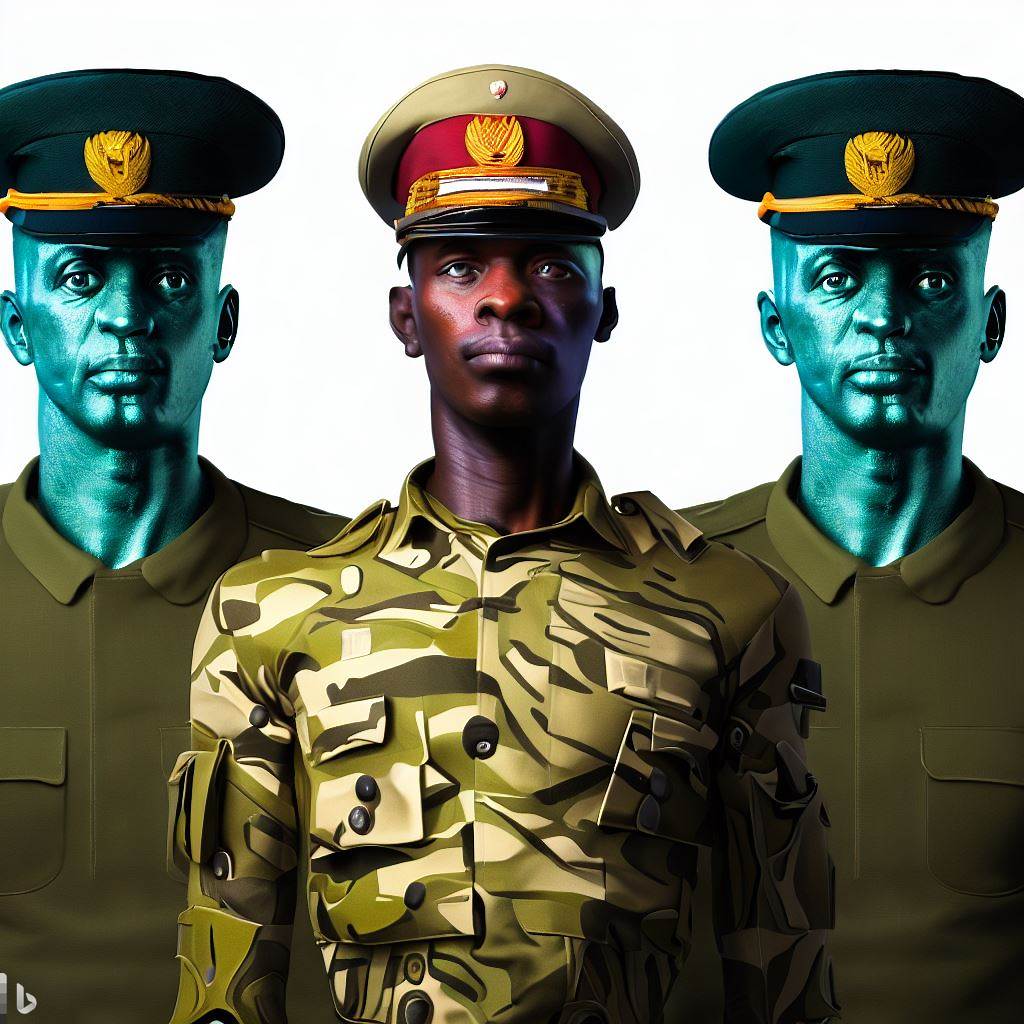Introduction
The Nigerian military profession is an essential part of the country’s security architecture. Its primary role is to defend the country against external aggression and maintain internal security.
However, this can only be achieved through a well-trained and equipped military.
Training programs are critical to the effectiveness of the military. They provide soldiers with the necessary skills and knowledge to carry out their duties effectively and efficiently.
Without adequate training, the military may find it challenging to handle modern security challenges.
Moreover, the success of any military operation depends on the quality of training received by the soldiers.
A poorly trained soldier is a liability to any military operation, and this can lead to avoidable loss of life and property. Therefore, training programs in the Nigerian military profession cannot be overemphasized.
In summary, training programs are essential components of the Nigerian military profession.
They ensure that soldiers are adequately prepared to handle modern security challenges, and their importance to the success of any military operation cannot be overemphasized.
Read: Corruption in the Nigerian Government: An Analysis
Types of Training Programs in the Nigerian Military
Training is an integral part of any military profession. The Nigerian military is no exception.
Training programs are designed to equip soldiers with the necessary skills and knowledge that will help them carry out their duties effectively.
There are different types of training programs in the Nigerian military, and each of them serves a specific purpose. Some of them include:
1. Basic Training Program
The basic training program is the first phase of the Nigerian military training. It is also known as the recruit training program.
The program is designed for new recruits, and it focuses on physical fitness, discipline, and teamwork.
The training lasts for about six months, and it aims to instill in the recruits the necessary skills and values that will help them become professional soldiers.
During the training, the recruits are taught marksmanship, navigation, field tactics, first aid, and other basic military skills.
2. Specialized Training Programs
Specialized training programs are designed for soldiers who have completed the basic training program and are looking to specialize in a particular field.
These training programs are tailored towards specific military occupations such as Infantry, Artillery, Logistics, and Intelligence.
The training programs offer in-depth knowledge, skills, and techniques that will enable the soldiers to perform specific tasks in their areas of specialization.
For instance, a soldier who specializes in artillery will be trained on how to operate and maintain artillery weapons.
3. Advanced Training Programs
Advanced training programs are designed for soldiers who have completed the basic and specialized training programs and are looking to advance their skills and knowledge further.
The advanced training programs offer advanced technical and tactical training that will enable the soldiers to perform more complex tasks.
The training programs may vary depending on the level of advancement. For instance, a soldier who has completed an advanced training program in infantry may be trained on how to lead a platoon in combat.
Training programs are essential in the Nigerian military profession. They equip soldiers with the necessary skills and knowledge that will help them carry out their duties effectively.
The basic training program is the foundation of the Nigerian military training, and it is followed by specialized and advanced training programs.
With proper training, Nigerian soldiers can perform their duties efficiently and effectively and ensure the safety and security of the nation.
Read: Decoding the Recruitment Process in the Nigerian Military
Benefits of Training Programs in the Nigerian Military
1, Improved readiness and readiness maintenance
One of the main benefits of training programs in the Nigerian military is the improvement of readiness and readiness maintenance.
Training helps soldiers to be prepared for any situation that they may face on the battlefield. It also helps them to maintain their readiness levels over time.
2, Enhanced operational effectiveness
Another benefit of training programs is the enhancement of operational effectiveness. When soldiers are well-trained, they are better prepared to carry out their duties effectively.
This can lead to better performance in the field and improved outcomes in military operations.
3, Improved unit cohesion and morale
Training programs can also help to improve unit cohesion and morale. When soldiers go through training together, they build a sense of camaraderie and teamwork.
This can help to improve their morale and make them more effective as a unit.
4, Improved individual skills and abilities
Training programs help soldiers to develop and improve their individual skills and abilities. This can include things like marksmanship, physical fitness, and leadership skills.
When soldiers are well-trained in these areas, they are better equipped to handle the demands of military service.
5, Career advancement opportunities
Finally, training programs can also provide soldiers with career advancement opportunities.
When soldiers excel in their training, they may be eligible for promotions or other career opportunities within the military. This can lead to a more fulfilling and rewarding career for these individuals.
Basically, training programs are critical to the success of the Nigerian military.
They help to improve readiness, effectiveness, cohesion, and individual skills. They also provide soldiers with career advancement opportunities that can lead to a more fulfilling and rewarding career.
Read: Top 10 Highest Paying Professions in Nigeria: 2023 Edition
Challenges Facing Training Programs in the Nigerian Military
The Nigerian Military is responsible for the defense and security of Nigeria, and to carry out its responsibilities effectively, it requires a highly trained and motivated workforce.
However, the Nigerian Military training programs face several challenges that hinder the effectiveness of its training programs. These challenges include:
Lack of Adequate Resources
One of the significant challenges facing the training programs in the Nigerian Military is the lack of adequate resources.
The military requires modern training resources and equipment to train its personnel effectively, but these resources are often not available or insufficient.
This lack of resources reduces the quality of training and hampers the development of the trainees’ skills.
Insufficient Infrastructure and Training Facilities
The Nigerian Military lacks sufficient infrastructure and training facilities to provide effective training to its personnel.
The available training facilities are often outdated and insufficient to cater to the growing number of trainees. This leads to overcrowding in training centers, which affects the quality of training offered.
Inadequate Trainers and Instructors
The effectiveness of the training programs in the Nigerian Military largely depends on the skills and experience of the trainers and instructors.
Unfortunately, the military often faces a shortage of skilled and experienced trainers and instructors. This affects the quality of training and reduces the effectiveness of the training programs.
High Turnover and Attrition Rates
The Nigerian Military experiences high turnover and attrition rates, which affect the continuity and effectiveness of its training programs.
The loss of experienced and skilled personnel reduces the quality of training, and the frequent changes in personnel disrupt the training programs, leading to delays and inconsistencies in training.
Insufficient Funding
Training programs in the Nigerian Military require adequate funding to provide effective training to its personnel.
Unfortunately, the military often faces insufficient funding for its training programs. This results in inadequate resources and infrastructure, which, in turn, affect the quality of training provided.
The training programs in the Nigerian Military face several challenges that reduce their effectiveness in providing quality training to its personnel.
Addressing these challenges requires a significant investment in resources, infrastructure, and personnel.
The Nigerian Military needs to prioritize training and allocate adequate resources to ensure that its personnel receive the training they need to carry out their responsibilities effectively.
By doing so, the military can improve its capacity to provide better security and defense to Nigeria.
Read: The Role of the Military in Nigerian Peacekeeping Missions

Efforts by the Nigerian Military to Improve Training Programs
In recent times, the Nigerian military has made conscious efforts to improve its training programs. Some of these efforts include:
Recruitment and retention strategies
The military has intensified efforts to recruit and retain highly trained and motivated individuals into the armed forces.
The recruitment process is now more rigorous, and candidates undergo extensive training to ensure they meet the required standards.
There is also an emphasis on retaining quality personnel through better remuneration, welfare packages, and career progression opportunities.
Expansion of training facilities
The Nigerian military has embarked on a comprehensive plan to expand its training facilities across the country.
This move is to ensure that enough facilities are available to train personnel efficiently. The military has also renovated and upgraded existing facilities to international standards.
These facilities include shooting ranges, obstacle courses, simulation centers, and combat training schools.
Investment in modern equipment and technology
The Nigerian military has recognized the importance of investing in modern equipment and technology to improve its training programs.
It has procured state-of-the-art weapons, vehicles, and other equipment to aid training. The military has also digitized its training programs, making them more interactive and user-friendly.
Collaboration with international partners
The Nigerian military has forged partnerships with international partners, including the United States, China, and the United Kingdom, to enhance its training programs.
The military has also sent personnel on exchange programs and joint exercises to other countries to learn new tactics and gain exposure to modern military training methods.
These collaborations have helped the Nigerian military to adopt best practices from other armies around the world.
Overall, the Nigerian military has put significant effort into improving its training programs.
With the right investment in personnel, facilities, equipment, and technology, the military can build a highly trained and efficient force capable of defending the country against any threat.
Read: Exploring the Organizational Structure of the Nigerian Government
Conclusion
The importance of training programs in the Nigerian military profession cannot be overemphasized.
Through quality training programs, soldiers are able to develop the necessary skills, knowledge, and attitudes required to execute their duties efficiently.
It empowers them to respond effectively to various security challenges confronting the country.
The future of the Nigerian military depends largely on the quality of its training programs and the commitment of its personnel to learning and development.
Therefore, there is a need for a sustained effort to improve the quality of training programs, and for soldiers to embrace the culture of continuous learning and development.
It is also important for the government to prioritize and adequately fund the military to enable them to provide quality training programs.
With sustained effort, the Nigerian military can protect the country’s integrity and address security challenges. The government and military authorities must work to improve training programs and benefit soldiers and society.




